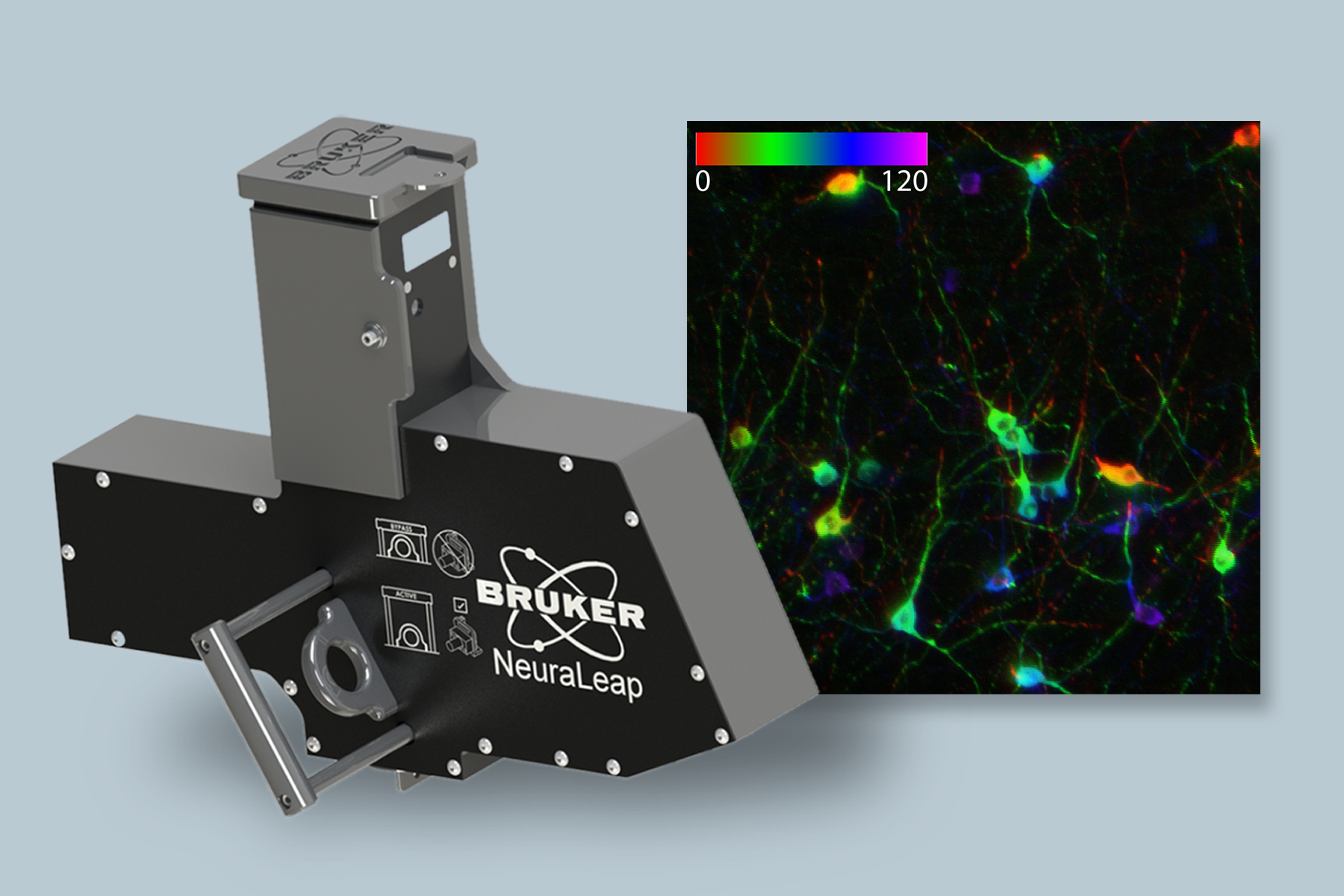Novel Use of Digital Micromirror Device Enables Variable Depth-of-Field Collection for Advanced Neuroscience Research
Bruker‘s recently released NeuraLeap™ digital focusing module provides their flagship Ultima 2Pplus multiphoton microscopes the groundbreaking imaging speed to access different layers of the cortex. Compared to traditional focus methods, the new module provides a three orders of magnitude improvement of switching speed between discrete imaging planes. NeuraLeap will be especially useful for correlating the activity of neuronal circuits across cortical layers, enabling researchers to more comprehensively and precisely investigate larger neural network functions.
 The NeuraLeap module (left) was used to scan (120 µm section) and color-code by depth the dopaminergic neurons of a mouse ventral tegmental area (right). Image credit: Bruker
The NeuraLeap module (left) was used to scan (120 µm section) and color-code by depth the dopaminergic neurons of a mouse ventral tegmental area (right). Image credit: Bruker
“My group is excited to have validated that with the NeuraLeap module on our Ultima 2Pplus, we were able to sequentially image both layer 2 and 5 with zero delay between frames,” said Lucas Pinto, M.D., Ph.D., assistant professor at Northwestern University. “This allows us to directly observe the neural correlates of behavior in these layers nearly simultaneously."
“The Ultima 2Pplus microscopes are continually enabling innovations to fulfill neuroscientists’ ultimate desire to image neural activity at the speed of real-time transmission,” added Xiaomei Li, Ph.D., Vice President and General Manager of Bruker’s Fluorescence Microscopy Business. “NeuraLeap is another significant advancement along this path. In light of recent neurotransmitter and calcium indicator improvements, it will be particularly exciting to see what researchers will discover using this new technology."
About the NeuraLeap Module
The NeuraLeap module on Ultima 2Pplus multiphoton microscopes provides unprecedented imaging speed across a range of depths with an extended depth-of-field laser excitation module and an ultrafast digital micromirror device (DMD) chip. Thick volumes can be collected at high frame rates due to the elongated illumination spot generated by the module. Additionally, the DMD’s mirrors can digitally refocus the beam to select multiple spots along this volume. Large depth of field and multiplane sampling will allow researchers to simultaneously correlate activity across depths, while fast switching will greatly increase the speed with which separate, arbitrary planes can be collected in sequence.